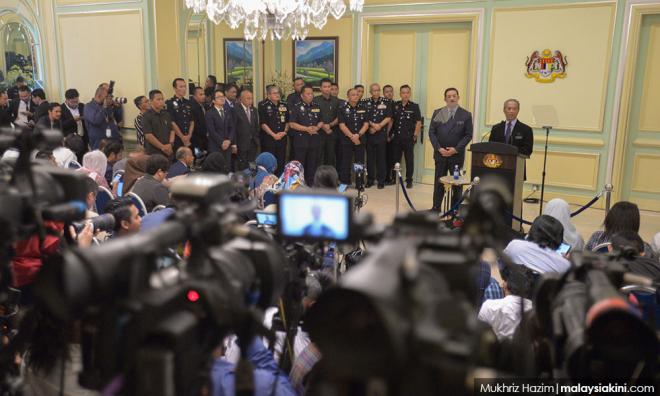
The classic response of a government under attack in the foreign press is to throw a tantrum. Immediately it goes into hysteria mode: "It's all a plot! plot! plot!" What plot? To topple a democratically-elected government!
The newspapers abroad may not know the political characteristics unique to a country but, when it comes to intrigues and skulduggery behind the workings of a government, journalists the world over need no special knowledge to write their stories.
A case in point is Malaysia. When the intrepid British journalist Clare Rewcastle-Brown broke the story about the 1MDB scandal, the then all-powerful prime minister Najib Abdul Razak went ballistic: "White people should stay out of Malaysia's administrative affairs."
The alleged "MO1" tried his best to suppress the accumulating news about his link to the 1MDB, but the tide was against him. A white woman had opened the floodgates that soon proved to be the undoing of the Umno helmsman. Corruption wears the same cloth everywhere.
Now comes another drama, which has all the ingredients of a political thriller: conspiracy, treachery, downfall of a government, palace intervention. The local press had a field day when it appeared certain that the Pakatan Harapan government was on the verge of crumbling.
When the Harapan government eventually collapsed, the country was on tenterhooks for many days as it awaited the denouement of the power struggle. The Malaysian press followed the events avidly until the new prime minister was chosen.
Local journalists went all out to cover every possible angle to piece together a coherent picture of the circumstances that led to the subversion of the Harapan administration.
But that was as far as they went. They could not turn their searchlight on other areas regarded as out of bounds. They know this is where they could mine more interesting details.
The matter has been settled through constitutional means and no one can question the wisdom of the solution. But journalists are an inquisitive lot; they will always dig and dig to get to the bottom of the story to ferret out the truth.
It is nice to think that our local journalists acted responsibly by not reading too much into the collapse of the Harapan government, unlike the Western counterparts who were bold to enter a prohibited zone.
But this is misleading. Local journalists are as tough and pugnacious as those in the West. They can be equally scathing in their criticism of holders of public office as the foreign press, even though they operate in a restrictive environment.
In the Harapan story, local journalists know that there is something not right with the installation of the new government. Their antennas have picked up many strong signals that indicate that there are many sensitive angles to the story. A thousand questions swirl in their minds — itching to find the answers.
They would like to cross into the forbidden territory, go behind the yellow curtains, question the decision-makers, and arrive at their own, unfiltered conclusions. As journalists, they cannot just flow with the current; they must turn back and go against the tide of official opinion. Yet, despite facing formidable obstacles, they have to carry out their duty responsibly.
But what is responsible journalism? Going by government definition, it is: You report what I tell you and not what you think is right. So, Harapan was constitutionally removed, it's all clearly done aboveboard, it was not overthrown; don't cast aspersions on our sacred institution (it's treason).
Our democracy is based on the Westminster model, so tell that to the British.
If you play by the rules set by all those in authority, you would most probably get a pat on the head: "Good boy! You're well-behaved unlike those hound dogs in the West." You are seen as fair, as long as you don't look at every nook and cranny for more information.
But journalism has its own drive, energy, and independence. It can be mean in its quest for truth; it can be combative when pushed to the wall; it can be compassionate in championing the underprivileged and the downtrodden.
In the main, responsible journalism means taking everything the government says with a pinch of salt, exposing every misdeed before the country is ruined, discharging one's duty even in the face of threats of harsh laws.
Journalists are a hardy breed trained to report nothing but the truth, but in some countries like Malaysia, the laws on press freedom are so draconian that the light of truth is often snuffed out.
Then it takes a white man or a white woman to tell you what is happening in your own country.
PHLIP RODRIGUES is a retired journalist. - Mkini



No comments:
Post a Comment
Note: Only a member of this blog may post a comment.